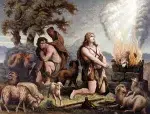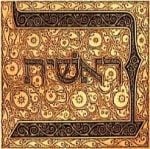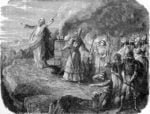
Gazing at the Shekhinah
In his commentary on this week’s Torah Portion, Yitro, Rabbi Chayim Vital, writing in the name of his teacher, the Ari-zal, states that Abel was

In his commentary on this week’s Torah Portion, Yitro, Rabbi Chayim Vital, writing in the name of his teacher, the Ari-zal, states that Abel was

…[H]e who tries to cure the soul, wishing to improve the moral qualities, must have a knowledge of the soul in its totality and

In the biblical story of the creation of Adam, the Torah states: Then the Eternal G‑d formed man of the dust of the ground, and

On the Eve of Shabbat, we received a government mailing containing documents that we were required to fill out and send back to the Census

Then drew near the daughters of Zelophehad …. of the families of Manasseh, the son of Joseph; and these are the names of his daughters:

In a Kabbalistic meditation on lighting Chanukah Menorah, the Arizal links the menorah lights with a supernal river (see Candle on the River). The Arizal’s
The previous Lubavitcher Rebbe, the Rebbe Rayatz (a.k.a. the Fridriker Rebbe) told the story about his father, the Rebbe Rashab. Once the brother of Rebbe

Synopsis This essay reads Jacob’s agreement with Laban over the streaked, speckled, and spotted sheep as far more than an odd detail in an ancient

Dedicated to the memory of Professor Yaakob David Bekenstein The Torah opens with the word “Bereshit” – in the Beginning – whose first letter, Bet,

Balak the son of Zippor saw all that Israel had done to the Amorites. Moab became terrified of the people, for they were numerous, and